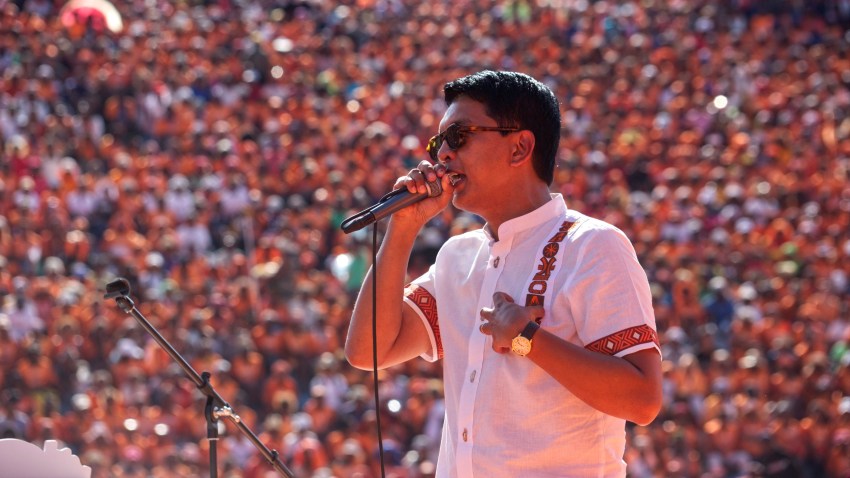On Dec. 1, Madagascar’s High Constitutional Court announced the results of the country’s presidential election held two weeks earlier, declaring incumbent President Andry Rajoelina the winner with 58.9 percent of the vote. Opposition candidates immediately declared they would not accept the results of the ballot, which followed months of rising tensions, calls for Rajoelina to step down and pleas to postpone the election.
Madagascar, one of the world’s most impoverished nations, could be hovering on the brink of another political crisis. Amid democratic backsliding and continued French support, Rajoelina will begin his third term as president with popular discontent and disillusionment with the ruling elite at an all-time high.
The 49-year-old Rajoelina, a former disc jockey, first came to power in a 2009 coup. With the backing of France—the country’s former colonial power whose economic and political influence remains significant—and Madagascar’s traditional elite, Rajoelina ousted the democratically elected businessman Marc Ravalomanana amid violent and deadly protests. The coup plunged the country into a protracted political and economic crisis under Rajoelina’s internationally isolated “transitional” government. Rajoelina eventually agreed not to run in the country’s 2013 election in an agreement brokered by the South African Development Community, or SADC. He handed power to Hery Rajaonarimampianina, his then-ally and victor of the 2013 ballot, before beating Ravalomanana in the subsequent 2018 election to become a “legitimate” president.

